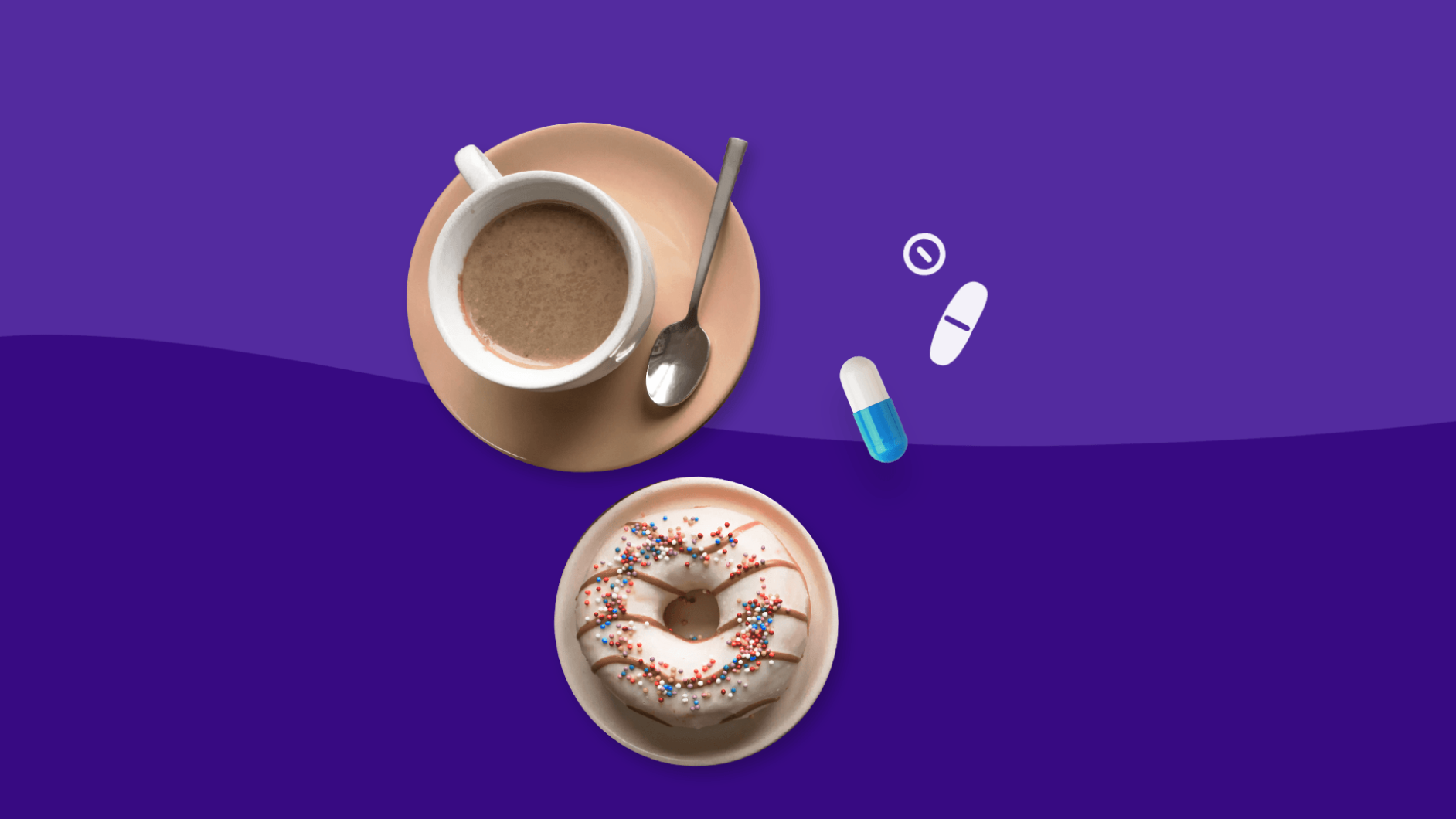Key takeaways
Both Adderall and caffeine are central nervous system stimulants that can intensify each other’s effects when taken together, potentially leading to undesirable side effects.
Consuming Adderall with caffeine in small amounts is generally safe, but larger doses can cause symptoms like nervousness, insomnia, and increased heart rate.
The interaction between Adderall and caffeine can vary by individual and may be influenced by other health conditions, necessitating consultation with a healthcare provider.
Misuse of Adderall, especially without a prescription, is a concern due to its high potential for abuse and dependence, and combining it with caffeine can increase the risk of negative side effects.
Adderall is a prescription medication that contains amphetamine, a central nervous system stimulant. The caffeine found in your morning cup of coffee is also a stimulant. Both substances affect your brain and how it works. When they are taken together, they can intensify each other’s effects. To steer clear of undesirable reactions, here’s what you need to know.
RELATED: Attention deficit hyperactivity disorder treatments and medications
Adderall vs. caffeine: How do they work?
“Broadly speaking, both caffeine and Adderall fall under the umbrella of what we call stimulants,” explains Yomi Adeyemi, MD, MS, family medicine resident based in Los Angeles, California, “Stimulants raise levels of physiological or nervous system activity in the body and generally produce increased alertness, attention, and energy.”
Adderall
Adderall (amphetamine/dextroamphetamine) increases the availability of the neurotransmitters norepinephrine and dopamine. This can help reduce the symptoms of ADHD, such as hyperactivity, inability to focus, and impulsivity. Adderall can also promote wakefulness and improve alertness for people with narcolepsy. Depending on the dosage and form of the prescription, the effects of Adderall can last anywhere from four to twelve hours.
People taking Adderall may experience side effects, including:
- Decreased appetite
- Trouble sleeping
- Nervousness
- Anxiety
- Weight loss
- Mood swings
- Agitation
- Nausea
- Digestive issues
- Fast heartbeat (tachycardia)
After taking Adderall for an extended period of time or in very high doses, you may experience withdrawal symptoms if you stop taking the medication suddenly. It’s not the right medication for people with heart problems or a history of substance abuse.
Caffeine
Caffeine also stimulates the central nervous system (CNS). It works as an adenosine receptor antagonist. Adenosine binds to the brain and makes you feel drowsy. Caffeine stops this process. After drinking a cup of coffee, most people feel awake and alert. Depending on the amount ingested, the effects of caffeine begin within 15 minutes and last for several hours.
“Caffeine is the most widely used and well-known over-the-counter stimulant,“ explains Dr. Adeyemi. It’s found in coffee, espresso, tea, soda, energy drinks, chocolate, and as a supplement in caffeine pills.
People may experience the following side effects after caffeine intake including:
- Unusually fast heartbeat
- Trouble sleeping
- Feeling nervous or irritable
The adverse effects typically increase with increased doses. The U.S. Food and Drug Administration (FDA) states that four to five cups of coffee a day (or 400 mg) is generally a safe amount for healthy adults, but always follow the medical advice of your healthcare provider to avoid unwanted side effects, like upset stomach or nervousness.
Do Adderall and caffeine interact?
While one cup of joe is unlikely to have much effect on this medication, having multiple shots of espresso could lead to unpleasant side effects. “If an individual is taking Adderall, the best recommendation would be to limit the amount of caffeine consumed,” says Javeed Siddiqui MD, MPH, co-founder and chief medical officer of TeleMed2U, “The combination of the two drugs can cause unpleasant side effects such as anxiousness, a jittery feeling and/or insomnia.”
While it’s technically safe to take Adderall and coffee together in low doses, larger amounts can lead to unpleasant symptoms and even stimulant overdose. The symptoms you may feel when taking Adderall and caffeine together may include:
- Digestive issues
- Nervousness
- Anxiety or panic attacks
- Headaches
- High blood pressure
- Increased heart rate or heart palpitations
- Insomnia
How much caffeine can someone ingest while taking Adderall? “The amount of caffeine that will cause these side effects is variable for each individual,” explains Dr. Siddiqui, “In addition, individuals with additional comorbidities such as hypertension, cardiovascular disease, or anxiety disorders need to discuss with their medical professionals before combining these medications due to side effects.” Most people will tolerate a limited amount of caffeine.
Does caffeine affect ADHD medication?
Taken together, caffeine and prescription stimulant drugs can enhance each other’s effects. Combining them is akin to taking too high a dose of ADHD medication or drinking too much caffeine. The same side effects of combining Adderall and coffee apply for other medications, such as:
- Ritalin (methylphenidate)
- Zenzedi (dextroamphetamine)
- Focalin (dexmethylphenidate)
- Vyvanse (lisdexamfetamine)
“Caffeine has the potential of interaction with any other stimulant medication,” Dr. Siddiqui explains. “It is best to discuss the combination with your medical provider. Again, the key is to keep caffeine consumption to small/limited amounts.”
Adderall misuse
Because of its reputation for improving alertness and focus, Adderall has often been misused by people who do not need it to treat a condition—especially college students. The DEA considers Adderall a schedule II prescription drug, meaning there is a high potential for Adderall abuse and dependence.
“Remember that Adderall is FDA approved for the treatment of ADHD and narcolepsy,” says Dr. Siddiqui. “The utilization of Adderall for focus without appropriate neuro-psychiatric test is not recommended.” Using this medication without a prescription increases stigma for those who need it, and increases the risk of negative side effects—with caffeine or without.
If you are struggling with Adderall misuse or drug abuse, the Substance Abuse and Mental Health Services Administration’s (SAMHSA) National Helpline is a free, confidential, 24/7, 365-day-a-year treatment referral and information service. Just call 1-800-662-HELP (4357).



